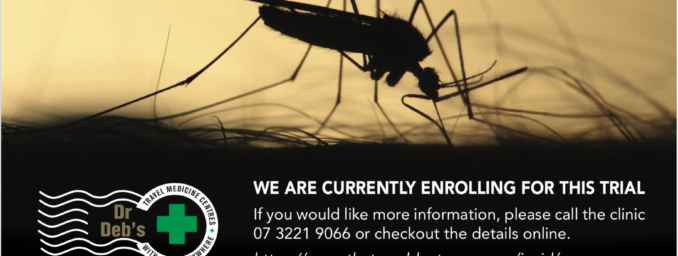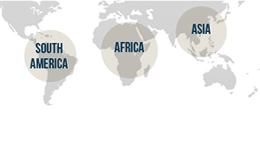Investigation of intra-dermal Japanese Encephalitis (JE) vaccine
October 1st, 2021
The enrollment for this trial has now closed
What is JE?
Japanese encephalitis (JE) is a dangerous disease in Asia spread by mosquitoes. The most recent death from JE was a Qld man who died in 2020 after contracting JE while travelling in Bali.
What is the research about?
In this study, we are using the normal, registered Australian JE vaccine. This vaccine is widely used in Australia and is very effective. The problem is that it costs about $300 per dose. Unfortunately, many travellers who might otherwise like to be vaccinated are forced to decline due to the cost. In this research, we are investigating the effectiveness of giving a micro-dose of the vaccine into the top layer of the skin (called the intradermal, or ID method). Normally the dose for JE vaccine is given into the muscle. Our research is investigating to see if using a lower dose in this way makes the vaccine cheaper and less painful for the recipients. This ID method is known to be a safe and effective method of giving other types of vaccines (such as rabies vaccine, influenza vaccine, and tuberculosis vaccine).
Who was eligible to participate
- Persons between 18-45 years ago
- who live in Brisbane (as the research is being done in Brisbane)
- who had not lived in a JE risk area for 12 months or more ( as you might already have antibodies to JE or Dengue fever)
- who had never had vaccines against JE, yellow fever, or dengue, or are likely to need to have them within 2 months of enrolling.
- who were not immunosuppressed, pregnant, or breastfeeding.
What did we do ?
ON ENROLLMENT Participants had a blood test and a microdose of the Australian-registered JE vaccine at our clinic in the city.
THEN Visited the clinic one month later for a blood test to check your response.
THEN Visited the clinic another month later for a final blood test to check your antibodies.
(Unfortunately for this project we could not use a regular pathology lab as the test for these antibodies is very specialised and being done by the QIMR Berghofer Research Institute https://www.qimrberghofer.edu.au)
Who is conducting the research?
The research is being conducted by Dr Deb The Travel Doctor in association with the University of QLD.
Of course, we have full ethics approval.
The full participant information sheet for the research is here: JEVID participant information vs 5
Here is a link to our team’s earlier research: https://www.crestma.com.au/published-research/
Finally…
it is only through the assistance of volunteer participants that research is able to advance medical science. This is especially true when it comes to vaccines.
We have all heard a lot about vaccines over the last 2 years of the pandemic. Did you know that approximately 127,000 people from many parts of the world, volunteered for the vaccine trials that led to the Covid-19 vaccines we have today in Australia. That number -127,000- does not include all the researchers, who developed the vaccines, designed the projects, made sure that the protocol was as safe as possible, liaised with the ethics committees and the medical staff who enrolled and cared for the participants. The advancement of science really is a massive group effort but it relies on the kindness of participants to give their time (and blood).
FURTHER INFO
PS Update 17 May 2022
The cases of Japanese Encephalitis in Australia in the early. part of the year brought this disease more into the public consciousness. There is even a report of a case of JE who had to go to hospital in Brisbane.
Our participants. are still coming for their subsequent blood tests. So far, our results are promising but we will post them here when available ( early results here Briefing_Intradermal JE vaccine. 11.3.22. pdf )



